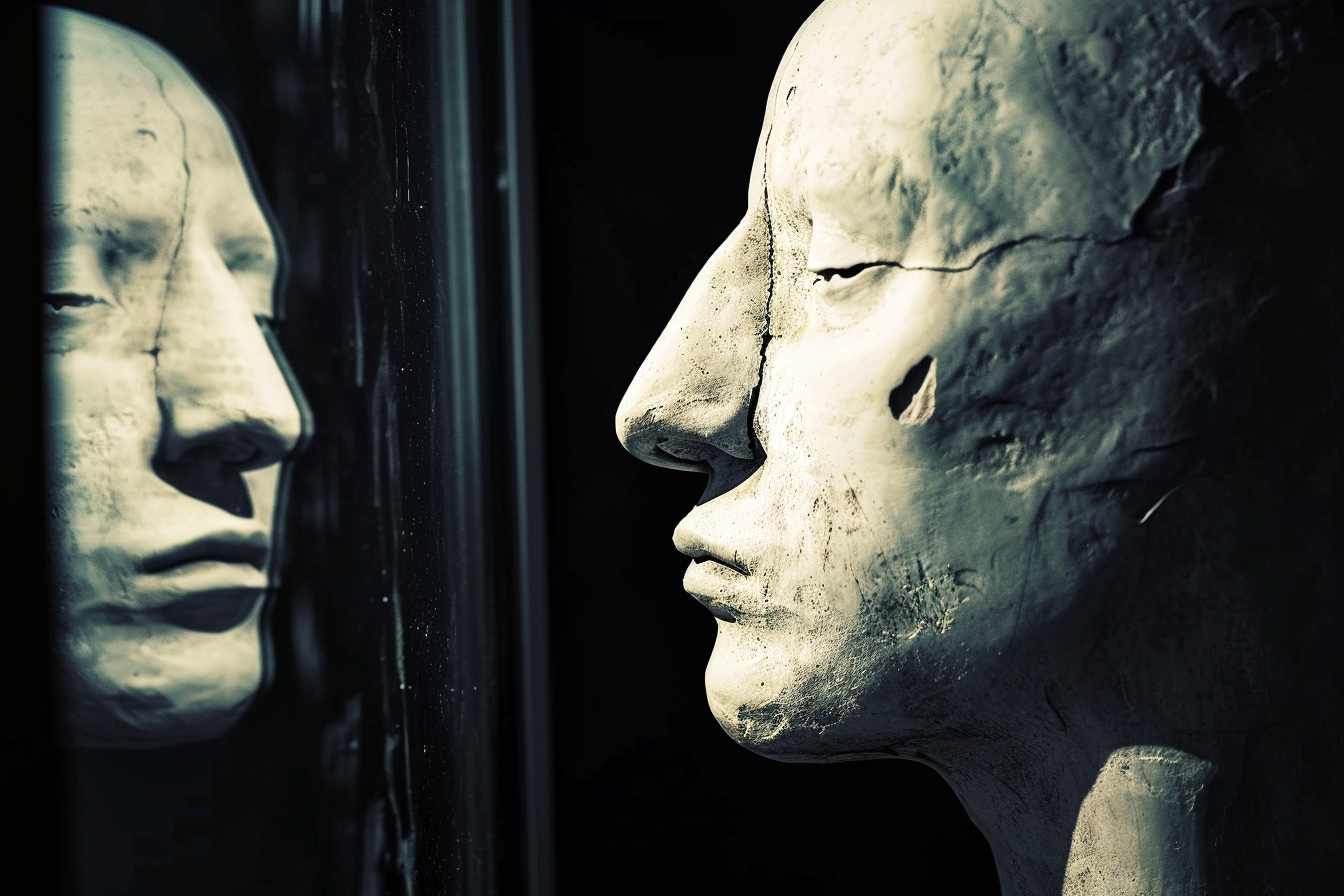Self-awareness, defined as conscious knowledge of one’s character, feelings, and desires, is a crucial component of the human experience. A developed sense of self allows us to reflect, set goals, regulate behavior, empathize, and ultimately actualize our potential. However, Self-awareness has a paradoxical nature while bringing significant benefits; deep self-knowledge can also expose us to brutal truths about ourselves, create overthinking, and hamper decision-making. This article explores the light and shadow sides of Self-awareness, outlining its advantages and risks, historical examples, and strategies to healthily navigate the complexities of knowing oneself deeply.
The Nature of Self-awareness
Components of Self-awareness
Self-awareness has three pillars: emotional awareness, self-reflection, and social awareness. Emotional awareness relates to recognizing and understanding our own emotions. This helps us process feelings, manage reactions, and choose optimal responses. Common emotions that fall into our field of vision with Self-awareness are anger, sadness, fear, joy, disgust, and surprise.
The second pillar, self-reflection, involves introspection of our inner landscape beliefs, past experiences, patterns, strengths, flaws, goals, and dreams. We examine the lens through which we view reality. Reflection helps reshape our sense of identity in positive ways.
Finally, social awareness looks outward. How do we impact others? It assesses our place within family, friendships, and community. Socially aware people recognize how their words/actions influence relationships and reputations. They align values with behavior.
Cultivating self-knowledge across these areas translates to noticeable benefits. Self-aware people make informed decisions, process information neutrally, take non-defensive feedback, empathize with different perspectives, and actualize potential. They possess high clarity and self-confidence stemming from inside rather than external validation. Their lives embody authenticity. Overall, Self-awareness facilitates maturity, productivity, and fulfillment.
Example: Sarah noticed her anger flared unpredictably, worrying her husband. Through self-reflection, she linked these episodes to painful childhood memories long buried. This self-insight helped Sarah address unmet needs, communicate vulnerably with her partner, and find inner peace.
The Paradoxical Elements
Increased Vulnerability
However, increased self-knowledge also exposes us to brutal inner truths that can be hard to confront. Understanding negative patterns may plunge us into anxiety as we become conscious of just how much we have to grow. We may uncover repressed traumas that overwhelm us when brought to light. Destructive tendencies identified through self-reflection can open a Pandora’s box of shame. Social awareness can heighten feelings of not belonging or alienation. Too much insight compounds overthinking, second-guessing, depression, and uncertainty about who we are or how to change.
Example: Although Alex valued Self-awareness, analyzing his perfectionism caused feelings of inadequacy. He started doubting all his choices, paralyzed by perceived flaws and societal pressures.
Navigating the Paradox
Strategies for Healthy Self-awareness
Since the path to self-knowledge contains inevitable pitfalls, we need skills to minimize unnecessary suffering as we peel away the layers of ego. Finding the sweet spot requires effortful learning around our limits.
Firstly, complement reflection with mindfulness, observing thoughts and emotions without judgment. This creates a distance from harsh self-criticism. Setting boundaries around rumination also helps prevent wallowing.
Secondly, solicit external feedback, not just listening to our biased inner voice. Wong notes that self-perception mainly stems from what others mirror back to us. Their input adds nuance, highlighting overlooked strengths.
Lastly, frame growth as a gradual journey. Expecting quick perfection because of newfound awareness leads to discouragement when we stumble. Our comprehension level differs across contexts. Missteps still offer valuable lessons when we hold space for imperfection. Use self-compassion as the guiding light.
The goal of healthy Self-awareness is not to eliminate ego but to recognize its distortions so we can see reality. We embrace the slow transformation out of inner wisdom rather than shame and discouragement.
Case Study: Sarah’s Self-Exploration to Overcome Emotional Volatility
Sarah utilized mindfulness to catch her anger triggers without judgment. She practiced loving-kindness meditation to meet difficult emotions with compassion. Setting a timeframe for processing unpleasant memories prevented unproductive rumination while giving space for needed reflection.
Seeking counseling provided an outside perspective that challenged assumptions Sarah held about responsibility for her childhood traumas. This helped relieve self-blame and resentment. As she learned her limits around inner work, Sarah permitted herself to take breaks when flooded. By allowing imperfection, she avoided falling into extreme asceticism or repression.
Applying these insights smoothed Sarah’s relationships as she openly discussed her challenges. Her husband felt relieved she took ownership of her anger rather than blaming external issues. He happily provided support. Her new authenticity and vulnerability deepened their intimacy.
During this self-exploration, Sarah also discovered hidden passions for writing and public speaking. Previously, those ambitions seemed unrealistic, given her emotional volatility. However, facing her wounds lifted the veil, revealing dreams now pulsating with possibility.
Key Takeaways
- Developing Self-awareness exposes inner truths that can be difficult to confront at first.
- Increased insight may lead to overthinking, anxiety, shame, paralysis, and self-doubt.
- Practicing mindfulness, seeking external feedback, and framing growth as a gradual process help mitigate these downsides.
- Finding balance allows us to actualize our potential and relate authentically with others.
- The paradoxical path, while mysterious and humbling, brings profound fulfillment
Conclusion
While profoundly illuminating, developing Self-awareness also exposes us to brutal truths about the inner world we may prefer to keep hidden. Painful memories, fears, unhealthy patterns, and perceived flaws rear their heads. However, leaning into this journey with compassion benefits ourselves and others immensely in the long term. We become more whole.
The key lies in mindfully setting boundaries against indulgent overthinking while holding space for necessary reflection. We maintain realistic expectations around growth and stay anchored in self-compassion when falling short. By avoiding extremes, we walk the razor’s edge that carves out awakening.
